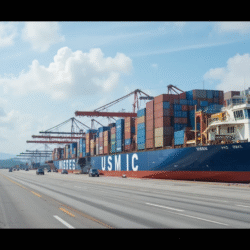In every factory, plant, or heavy-duty workshop, the performance of hydraulic systems directly impacts productivity. From manufacturing machinery and mining equipment to construction vehicles and power generation systems, hydraulics play a central role. Yet, one often overlooked component silently ensures these systems run smoothly—the hydraulic filtration machine.
When hydraulic oil becomes contaminated, the entire system is at risk. Particles, moisture, and sludge can wear down components, cause system failures, and lead to costly downtime. A reliable hydraulic filtration machine acts as a safeguard, keeping systems clean, efficient, and long-lasting. This article explains why every industrial setup, regardless of size or sector, should consider hydraulic filtration a non-negotiable part of its maintenance plan.
1. Understanding the Role of Hydraulic Filtration
A hydraulic system operates by transmitting power through pressurized fluid. Over time, this fluid collects impurities—such as dirt, metal shavings, oxidation residues, or water. Even microscopic contaminants can cause major damage, clog valves, and wear out pumps or cylinders.
A hydraulic filtration machine removes these unwanted particles through a system of fine filters and purification processes. It ensures that the oil remains clean enough to meet the system’s pressure and precision requirements.
In short, filtration protects the “circulatory system” of the machine. Just as clean blood keeps a body healthy, clean hydraulic oil keeps an industrial setup running efficiently.
2. Why Contaminated Hydraulic Oil Is a Silent Threat
Contaminated oil is responsible for the majority of hydraulic failures. In fact, industry studies show that up to 80% of hydraulic system breakdowns are linked to oil contamination. These failures aren’t just technical—they translate to significant financial losses.
When dirt or water enters the oil, it can:
- Reduce component life – Contaminants scratch and erode metal surfaces, leading to premature wear.
- Increase operating temperature – Dirty oil causes friction and inefficiency.
- Lead to sudden breakdowns – Blocked valves or filters can stop systems unexpectedly.
- Raise maintenance costs – Frequent oil changes, part replacements, and unplanned repairs become common.
For industries where downtime equals lost revenue—such as mining, steel, construction, or power generation—these risks are unacceptable. A hydraulic oil filtration machine prevents these problems before they occur, making it a smart investment rather than a cost.
3. Key Benefits of a Reliable Hydraulic Filtration Machine
a. Longer Equipment Life
Clean oil reduces internal wear on pumps, actuators, and valves. Over time, this extends the lifespan of machinery and critical components, saving thousands in replacement costs.
b. Lower Operating Costs
While installing a hydraulic filtration system requires an initial investment, the long-term savings are significant. Reduced breakdowns, fewer oil changes, and less frequent part replacements all contribute to a lower total cost of ownership.
c. Improved System Efficiency
Contaminants increase friction and resistance within hydraulic systems. A well-maintained filtration system ensures smoother operation, better pressure control, and consistent performance.
d. Reduced Downtime
Unexpected shutdowns can disrupt production schedules and affect delivery commitments. Reliable filtration keeps hydraulic systems running at peak efficiency, minimizing interruptions and maximizing uptime.
e. Enhanced Safety and Reliability
A contaminated hydraulic system can behave unpredictably. Clean oil ensures precise control and stable pressure, which are essential for safe and reliable machine operation—especially in industries where safety is non-negotiable.
4. How Hydraulic Filtration Machines Work
At its core, a hydraulic filtration machine uses a combination of mechanical, chemical, and sometimes vacuum-based processes to remove contaminants from hydraulic oil. Here’s a simplified breakdown of how it typically works:
- Oil Intake: The machine draws contaminated oil from the reservoir or system.
- Pre-Filtration Stage: Larger debris and solid particles are captured using coarse filters.
- Fine Filtration: Smaller contaminants, including microscopic particles, are removed by high-efficiency filters.
- Water Removal: Some filtration machines use vacuum dehydration or coalescing technology to eliminate moisture.
- Oil Recirculation: The cleaned oil is returned to the hydraulic system, ready for use.
Advanced filtration systems also monitor pressure differentials, temperature, and filter condition to optimize performance.
5. Common Types of Hydraulic Filtration Machines
Depending on the industrial requirement, there are various types of hydraulic filtration setups:
- Offline Filtration Units (Kidney Loop Systems): These systems continuously clean hydraulic oil, even while the main system is running. Ideal for large machinery or continuous operations.
- Portable Filtration Carts: Compact and mobile, these units are used for periodic maintenance or transferring oil between containers and systems.
- In-line Filters: Installed directly within hydraulic lines to trap particles as the oil circulates.
- Vacuum Dehydration Units: Specialized systems that remove water and gas from hydraulic oil—critical in marine, turbine, or heavy industrial applications.
Selecting the right machine depends on the type of hydraulic system, contamination levels, and operational environment.
6. Applications Across Industries
A hydraulic filtration machine is relevant to nearly every sector that relies on hydraulic power.
Manufacturing and Production Plants
From injection molding machines to presses, clean hydraulic oil ensures precise operation and reduces unplanned stoppages.
Construction and Mining
Heavy machinery such as excavators, cranes, and loaders face harsh environments. Filtration keeps their hydraulic systems running despite dust, mud, and high workloads.
Oil and Gas
Hydraulic systems in drilling rigs, subsea equipment, and refineries demand reliability. Clean oil prevents corrosion and ensures consistent performance under extreme conditions.
Power Generation
Turbines and hydraulic governors in power plants require stable oil conditions. Filtration maintains optimal performance and prevents costly shutdowns.
Marine and Offshore
Saltwater and humidity make contamination control crucial. Advanced filtration protects systems from moisture damage and ensures smooth operations in tough environments.
7. Choosing the Right Hydraulic Filtration Machine
Not all filtration systems are built the same. When selecting one, industrial buyers should consider:
- Filtration Capacity: Ensure the unit can handle the system’s oil volume and flow rate.
- Filter Efficiency (Micron Rating): The lower the micron rating, the finer the filtration.
- Contaminant Type: Choose a system that targets the specific impurities present—solid particles, water, or oxidation sludge.
- Mobility and Maintenance: Portable systems suit service operations, while fixed units suit production lines.
- Automation and Monitoring: Modern filtration machines come with sensors and indicators that alert when maintenance is needed.
Working with a trusted supplier who understands the specific needs of your operation ensures the best long-term results.
8. Maintenance Tips for Maximum Efficiency
Even the best hydraulic filtration system needs regular attention. Here are a few best practices:
- Monitor Oil Cleanliness: Regular oil analysis helps detect contamination early.
- Replace Filters on Time: Avoid pushing filters past their rated lifespan.
- Inspect Seals and Hoses: Leaks can introduce contaminants and reduce pressure.
- Store Oil Properly: Keep hydraulic oil sealed and clean before use.
- Keep Records: Track maintenance activities to identify recurring issues or performance trends.
Proactive maintenance helps extend the life of both the filtration machine and the hydraulic system it protects.
Conclusion: Investing in Reliability and Performance
Every industrial setup depends on hydraulic systems that perform efficiently, consistently, and safely. A reliable hydraulic filtration machine is more than a maintenance tool—it’s an essential protector of productivity. Clean oil means fewer breakdowns, lower costs, and longer-lasting equipment.
Ignoring filtration often leads to hidden expenses and unexpected downtime, while investing in it guarantees steady performance and peace of mind. For any organization aiming to maintain operational excellence, hydraulic filtration isn’t optional—it’s essential.
If your facility hasn’t yet adopted a dedicated hydraulic filtration system, now is the right time to explore your options and choose one that fits your setup. The benefits—reliability, safety, and long-term savings—speak for themselves.





